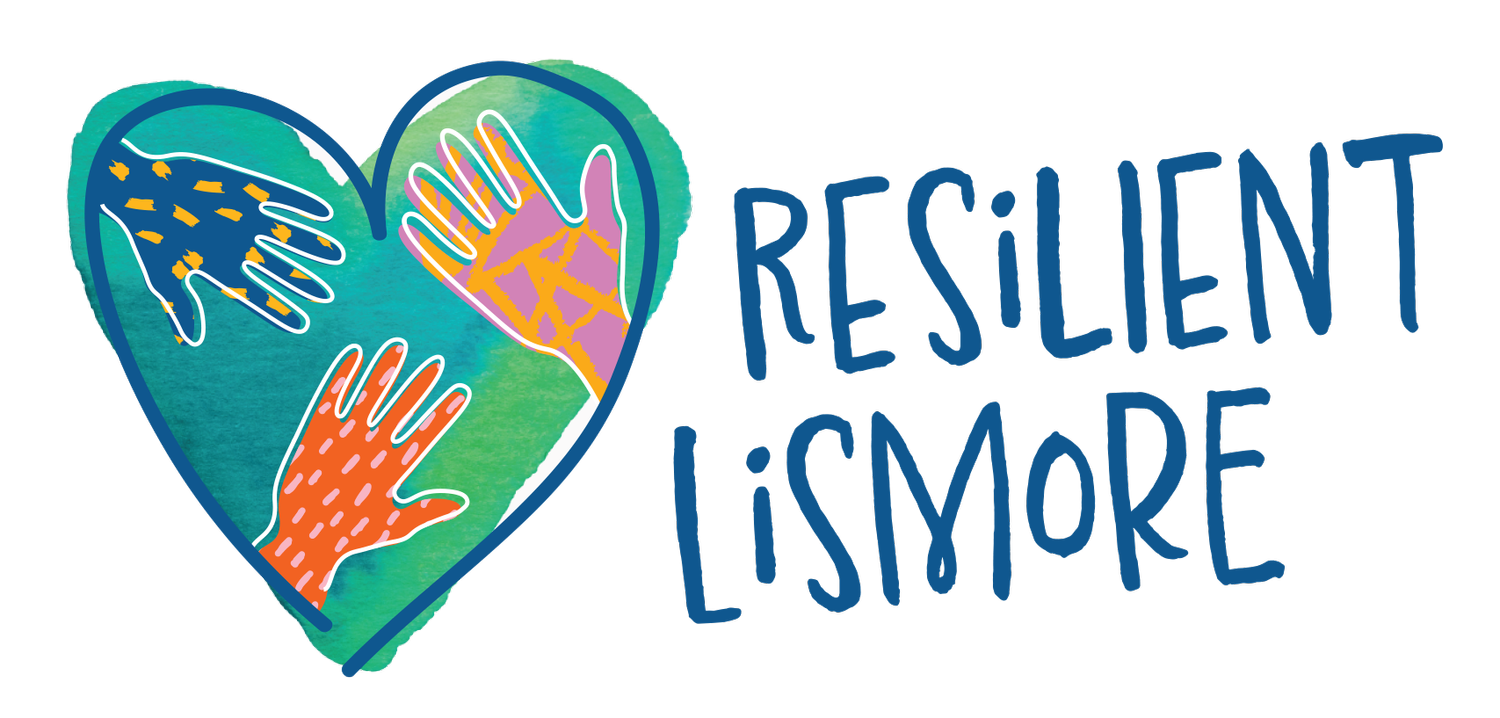Jonathan goes back to school for recovery learnings
Jonathan spreading the heart message with fellow course participants
Our Field Coordinator Jonathan went back to school this week and learned plenty – not the least of which was that Resilient Lismore is on the right track with our efforts to assist our community’s recovery.
Jonathan was in Melbourne undertaking the residential element of the Foundations in Disaster Recovery for Communities short course at the University of Melbourne.
Our Recovery Coordinator Claire took the mostly online course earlier in the year and our Operations Manager Robyn will take it late in the year.
The four units are designed to create a connection between practitioners (that’s us) and research in the field of disaster recovery and establish networks between practitioners and researchers.
Run by the School of Population and Global Health at the University of Melbourne, the course is mostly online but this week brought together people from around Australia, including council recovery officers, Education Department support staff, members of bushfire-affected communities, and the SES.
The course has involved reading a raft of scientific papers, including a comprehensive guide called Guide to Disaster Recovery Capitals.
“It's a really good way of looking at all the different things that need to happen in recovery and how they interrelate as well,” Jonathan says.
“It's quite a comprehensive document. It looks at key considerations and it also points out what we know. In other words, it's specific evidence-based material.
“I'm starting to introduce it into the work we're doing here. So that's part of doing this course: to introduce information that we have into our work environment and into how we're working in this area.
There is an increasing amount of evidence-based research that allows us to understand how to both prepare for and recover disasters. The researchers and academics who have conducted the research are working hard with government bodies to change policies and procedures to reflect that knowledge.
“Australia is quite behind in its organised approach. We've got quite a bit of work to do to improve both our ability to prepare and our ability to recover,” Jonathan says.
“Through these courses, they're networking and getting information out. Which is the pathway forward. So, it’s very worthwhile.
“I've found it really good. Some of the scientific papers have been a bit hard to read, but it's been very interesting to look at the elements of recovery from mass trauma and that kind of stuff and the key elements that they talk about in mass trauma recovery, we're actually performing, we actually match that evidence. We are matching the evidence behind the key elements of recovery from mass trauma, our programs are fulfilling those key elements through our Two Rooms repair project.
“We are doing something right. And we are fitting into what is well-researched information. We're not just making things up out of thin air and we're not just being reactive either. There is a level of intelligence to our work and we're improving in that area.
“There's a lot going on and we are networked into a much larger body of knowledge. I think it's really important that people realise that Resilient Lismore is not working as a silo. We are actually really connecting in and that we are really keen to connect in and work with all the other hubs. And in working together towards a common goal of recovery, and that as a collective we share our knowledge and resources.”
It's encouraging to know that the Northern Rivers is not alone in this recovery journey. There is knowledge to be shared and support to draw on as we continue on our path.
For more information, visit https://www.phoenixaustralia.org/

